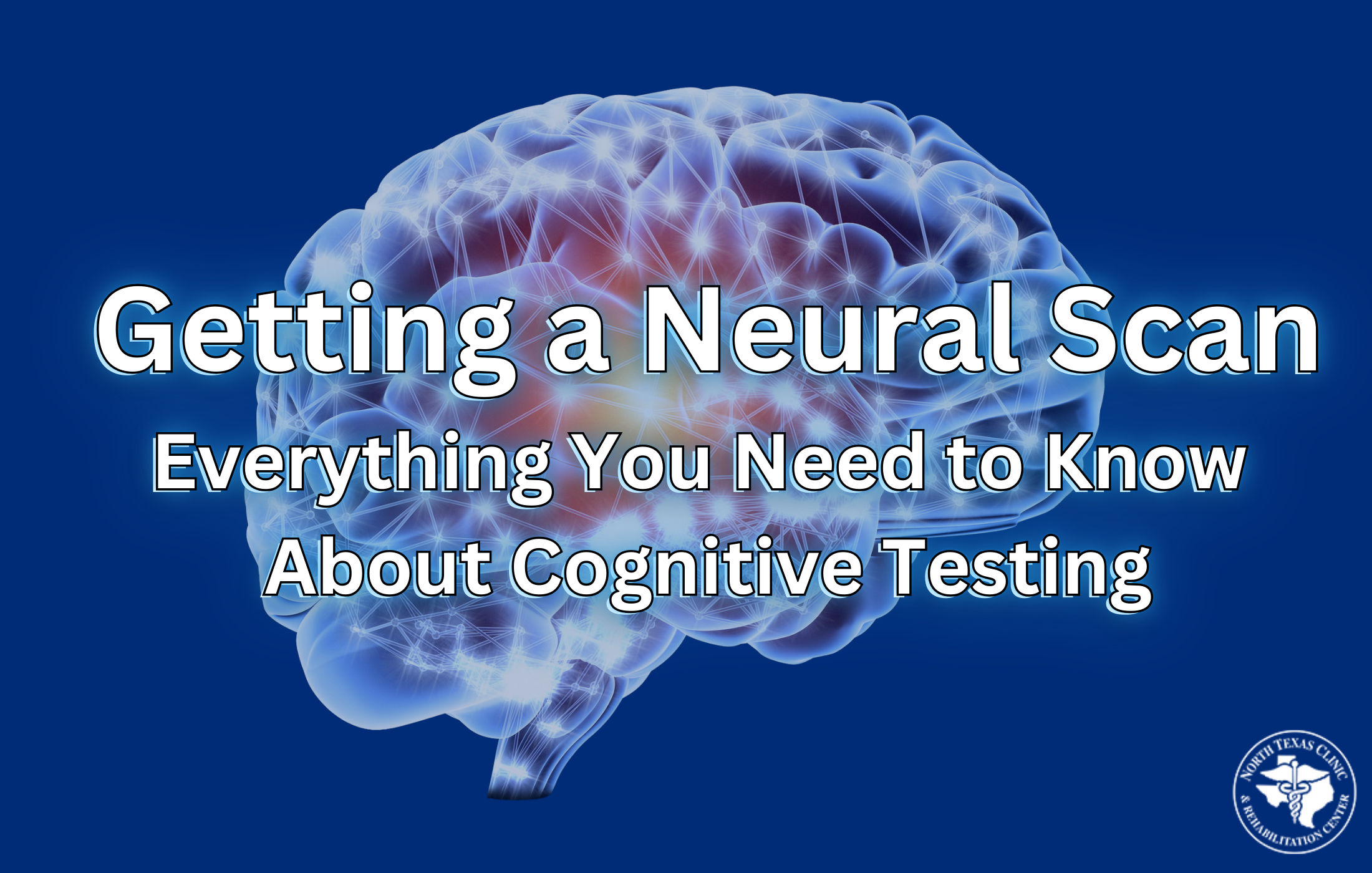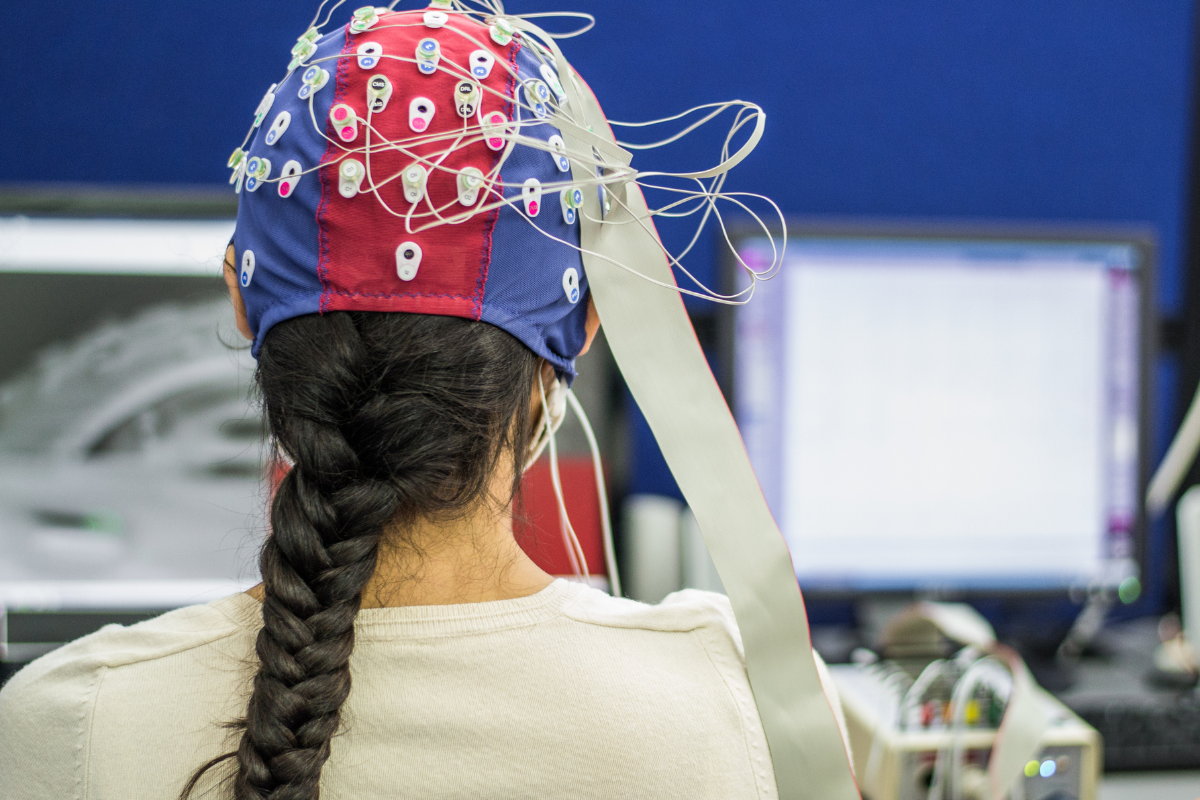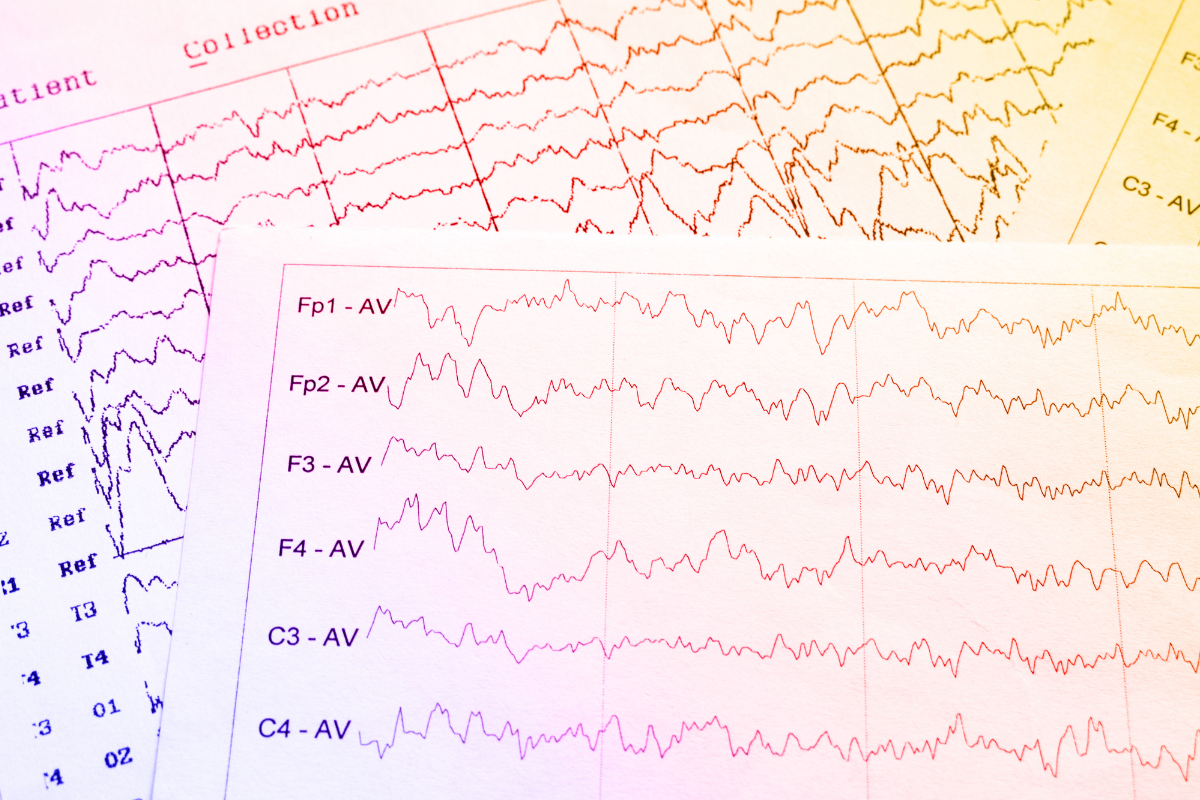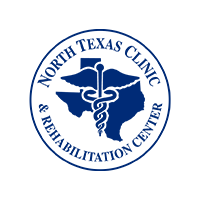
As medicine and diagnostics continue to advance, the neural scan represents a groundbreaking advancement in understanding and treating neurological conditions. These sophisticated imaging techniques allow doctors to peer inside the brain, offering unparalleled insights into its structure and function.
Most importantly, at least from a patient’s perspective, we can do them quickly and painlessly.
If you’ve been exploring cognitive testing with neural scans, we’ll explain how they work, what they can diagnose, and why you might consider getting one.
How a Neural Scan Works
While there are different techniques for examining the brain’s inner workings, we use the BrainView Neural Scan system.
This non-invasive, painless diagnostic procedure uses electroencephalography (EEG) for brain activity while measuring heart activity with an electrocardiogram (ECG). These are measured through electrodes in a cap worn on the head and taped to the chest.
While wearing electrodes, you’ll perform a 30-minute series of “brain exercises” while sitting comfortably. These tasks measure information processing, executive function, and other essential aspects of cognitive health.
As you go through the exercises, the electrodes immediately relay information about the electrical activity inside the brain. Your provider will analyze the results of that activity to determine the health and functioning of your brain.

What Can a Neural Scan Diagnose?
Neural scans are crucial in diagnosing a wide range of neurological conditions and cognitive functioning. Ranging from mental health challenges to future memory loss, this simple test can give healthcare providers the answers they need to diagnose, delay, and treat many brain-related issues.
Some of the specific conditions neural scans detect include:
- Dementia and Memory Loss: Even if symptoms are mild or not yet present, a neural scan can detect dementia and memory issues as much as ten years in advance.
- Epilepsy and Seizures: EEG is the gold standard for diagnosing epilepsy, as it records abnormal electrical activity associated with seizures. Neural scans can even catch absence seizures.
- Sleep Apnea and Sleep Disorders: For people who never seem to get enough rest, this test can uncover sleeping disorders such as sleep apnea and insomnia.
- Pain: Neural scans can examine brain activity to measure pain severity and help identify its source. When the pain’s cause is unknown, this helps providers create a more thorough diagnosis and treatment plan.
- Concussion: For anyone who has hit their head, getting a neural scan can detect even a minor concussion. This is especially important for athletes or people at risk for repeat injuries, which can have dangerous consequences.
- Psychiatric Disorders: This procedure can pinpoint signs of anxiety, depression, PTSD, schizophrenia, and other mental illnesses, helping providers develop a safer, more effective treatment plan.
In addition to diagnosing these and other conditions, neural scans are also important during treatment.
Brain activity results can show whether medications or other therapies are working or need modification. They also highlight how a condition progresses and give providers a clearer picture of their patients’ future health.

Who Should Consider Having a Neural Scan?
Neural scans are completely non-invasive and don’t require a contrast or other special preparation activities. Therefore, anybody capable of taking the computer assessment is a good candidate for one. It can be a beneficial procedure for proactive brain health and early intervention.
However, providers may recommend it more strongly for some people based on their family history, known medical conditions, current symptoms, and health concerns.
These factors may include:
- Neurological symptoms — Symptoms such as frequent headaches, seizures, memory loss, or cognitive decline indicate an immediate need for evaluation and a neural scan.
- Family history of neurological disorders — If family members have had conditions such as Alzheimer’s, Parkinson’s, brain tumors, or other similar issues, an EEG can detect abnormalities for early diagnosis and intervention.
- Mental health challenges — Neural scans can diagnose mental illness for precise and effective treatment.
- Memory issues, “brain fog,” or difficulty processing information — If you feel like you’re forgetting things often, zoning out, drifting off while speaking, or other signs of potential cognitive impairment, you should consider a neural scan to identify the cause.
- Recent accident, fall, or hit to the head — You can have a concussion and not realize it or experience symptoms for the first few days. To prevent serious complications, it’s best to see a healthcare provider to rule out a concussion after an injury.
- Being an athlete or working in a high-risk job — Anybody who is at risk of a traumatic brain injury in their jobs should consider regular neural scans, especially after an incident. Early detection of brain damage can guide treatment and prevent long-term consequences.
Your provider may also recommend a neural scan with ANS testing if you’re at risk for a stroke.
Neural scans are also helpful throughout the treatment of mental health problems, neurological conditions, or if you have unknown pain.

How Do You Prepare for a Neural Scan?
Fortunately, there’s very little you need to worry about for preparing for a neural scan.
First, wear comfortable, loose clothing, preferably a shorts/shirt combination. This recommendation is so that we can easily apply chest electrodes, if needed, as well as for your own comfort.
Second, wash your hair the night before or the day of your appointment, and do not apply gel, hairspray, or leave-in conditioner. The electrode cap requires gel to work, which we have to put on your head or in your hair. Not to worry though; it washes out easily!
That said, be prepared to take a shower after your neural scan to remove the gel.
Finally, inform your provider if you have had a concussion or head injury in the past two weeks. If your provider requires any additional preparation, such as discontinuing a medication, they will discuss that with you before your appointment.
The Future of Medicine
The neural scan is a vital tool in modern medicine, offering detailed insights into brain structure and function. They play a crucial role in diagnosing many neurological conditions, from acute injuries to chronic diseases.
While not everyone needs a neural scan, individuals with neurological symptoms, a family history of neurological disorders, or those at risk of traumatic brain injuries should consider discussing the potential benefits with their healthcare provider.
As technology advances, neural scans will continue to enhance our understanding of the brain, leading to more accurate diagnoses and increasingly effective treatments.
If you believe you could benefit from a neural scan, call North Texas Clinic & Rehab today!





